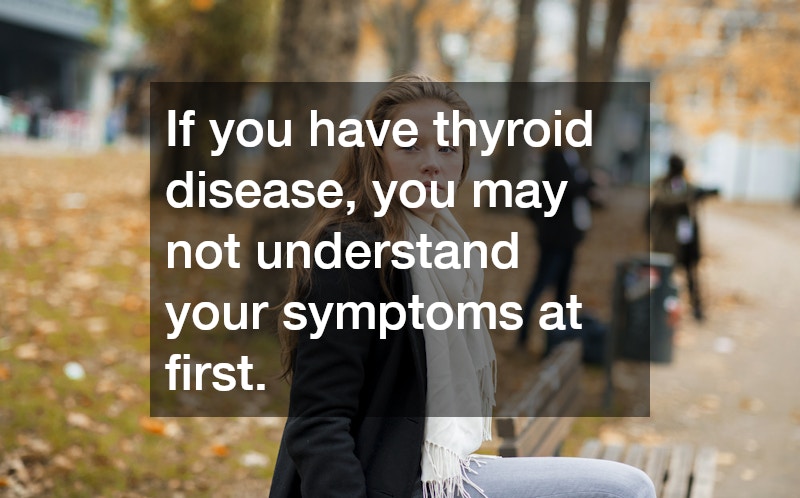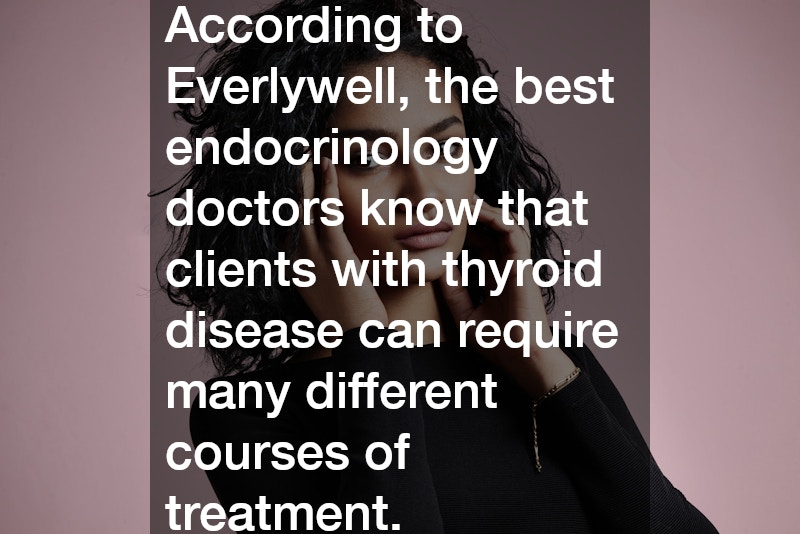
If you have thyroid disease, you may not understand your symptoms at first. The thyroid is the largest endocrine gland in your body, and it can malfunction when it is too active, or not active enough. Symptoms of hyperthyroidism (overactive thyroid) include irritability, weight loss, and rapid heartbeat; hypothyroidism will result in symptoms of weight gain and cognitive disturbances. People with thyroid disease will typically visit thyroid specialists.

Since the thyroid is an endocrine gland, your primary doctor may have recommended endocrinologist intervention. (An endocrinologist is a doctor who specializes in hormones.) According to Everlywell, thyroid specialists help clients with thyroid disorders by trying to balance their thyroid hormones. For clients whose thyroid level is too low, top thyroid doctors prescribe synthetic hormone replacements; for clients with an overabundance of thyroid hormones, they prescribe anti-thyroid medication.

According to Everlywell, the best endocrinology doctors know that clients with thyroid disease can require many different courses of treatment. Some clients prefer holistic approaches to their illnesses. For those clients, a functional thyroid doctor may be the solution. Functional medicine considers the client as a whole person and considers their overall health and lifestyle to determine a solution for their symptoms.
Thyroid Disease Is Common
Your thyroid is the largest endocrine gland in your body, and it produces two hormones: T3 and T4. These hormones control the rate at which your body burns energy and responds to stress. An estimated 20 million Americans have some form of thyroid disease. Women, adults who are over 60 as well as women who have been pregnant or have delivered a baby within the last six months are also at higher risk of developing a thyroid disorder. Other ar risk groups include:
- Those with a family history of thyroid disease
- Those who have had neck surgery or radiation
- Anyone with pernicious anemia
- Those with type 1 diabetes
- Those who have been treated for a thyroid problem
Types Of Thyroid Disease
Your thyroid can malfunction, in two ways; hyperthyroidism (when too much thyroid hormone is produced in the body) or hypothyroidism (when not enough thyroid hormone is produced).
Symptoms of Hyperthyroidism may include:
- Nervousness or irritability
- Weight loss
- Fatigue or muscle weakness
- Hand tremors
- Rapid and irregular heartbeat
Symptoms of Hypothyroidism may include:
- Weight gain
- Memory loss
- Constipation
- Dry skin/brittle fingernails
- Decrease in cognitive function
Thyroid Disease Test
Thyroid Stimulating Hormone is produced by a pituitary gland in the brain and plays a crucial role in regulating thyroid hormone production. Abnormal TSH levels can cause the thyroid gland to malfunction and lead to health issues. You should have a thyroid disease test done annually, especially if you fall under any of the at-risk groups. A thyroid disease test is done with a simple finger-stick and blood test. Your blood is then measured for thyroid-stimulating hormone (TSH) levels, which is a key indicator for how well the thyroid is functioning.
Even if you don’t suffer from thyroid disease-related symptoms, you should consider getting tested as a preventive health screening. Staying healthy can improve your appearance, mood and overall quality of life. The only dumb question is one now asked right? So why not ask your doctor about a thyroid disease test and other disease screening. You should ask about a full body scan health check at your next medical screening. It could put you ahead of the diseases.